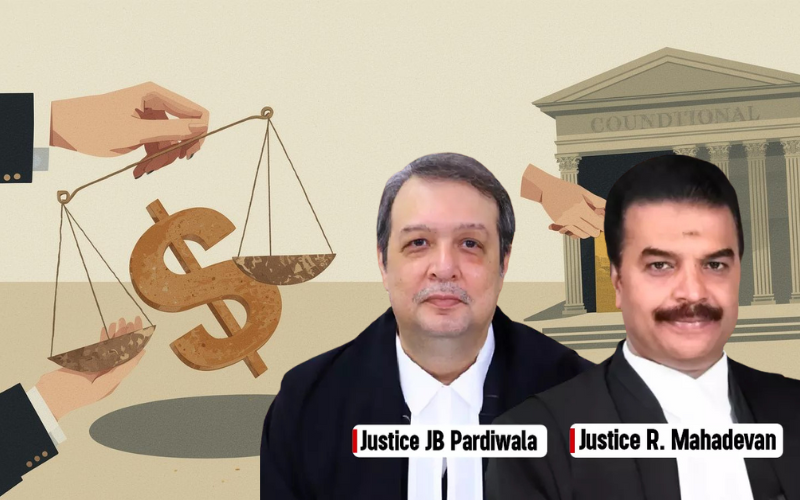No Abuse of Process of Law Bail Conditions
In a recent landmark judgment, the Supreme Court of India has unequivocally condemned the practice of granting bail conditioned upon financial deposits or undertakings. This decision, arising from the case of Gajanan Dattatray Gore v. State of Maharashtra, has set a precedent for courts across India, reinforcing the principle that bail should be adjudicated solely on the merits of the case.
Background of the Case
The appellant, Gajanan Dattatray Gore, was arrested in connection with a case involving allegations of misappropriation of funds amounting to Rs. 1.6 crore. Initially, the Bombay High Court granted bail on the condition that Gore deposit Rs. 25 lakh as an indication of his bona fide intentions. However, Gore failed to comply with this financial undertaking, leading to the complainant seeking the cancellation of his bail.
Supreme Court's Intervention
The Supreme Court, presided over by Justices J.B. Pardiwala and R. Mahadevan, addressed the appeal challenging the High Court's decision to modify the bail conditions. The Supreme Court emphasized that imposing financial conditions for bail undermines the dignity and integrity of the judicial process. It asserted that such practices are impermissible and should be eradicated from the legal system.
Key Takeaways from the Judgment
1. Merit-Based Bail Decisions: The judgment highlighted the importance of deciding bail applications strictly on their merits, without resorting to financial conditions. It underscored the notion that bail is a right, not a privilege, and should not be contingent upon the accused's financial capability to deposit money.
2. Professional Ethics and Legal Integrity: The court criticized the conduct where accused persons or their lawyers offer financial undertakings to secure bail, deeming it an abuse of the legal process. This practice not only undermines the court's authority but also reflects poorly on professional ethics in legal practice.
3. Directions to Lower Courts: The Supreme Court issued explicit directions to both Trial Courts and High Courts across the country, instructing them not to grant bail based on financial undertakings. It reinforced that bail must be adjudicated based on the legal merits of each case, free from any monetary considerations.
4. Restoration of Judicial Dignity: By abolishing the practice of conditional bail, the Supreme Court aimed to restore the dignity and honor of the judicial process. This judgment serves as a reminder that the judiciary must not be perceived as a financial recovery agent, and its decisions should be respected and adhered to without manipulation.
Implications of the Judgment
The Supreme Court's decision in Gajanan Dattatray Gore v. State of Maharashtra marks a significant shift in the judicial approach to bail applications. It sets a precedent that reinforces the principles of justice, equity, and fairness, ensuring that financial status does not influence judicial decisions.
Moreover, this judgment serves as a clarion call for legal professionals to uphold ethical standards, maintaining the sanctity of legal proceedings. By curbing the practice of conditional bail, the Supreme Court has taken a substantial step toward ensuring that the judicial process remains impartial and grounded in the rule of law.
Conclusion
The judgment in Gajanan Dattatray Gore v. State of Maharashtra is a testament to the Supreme Court's commitment to preserving the integrity of the judicial system. By mandating merit-based bail decisions, the court has fortified the foundation of justice, ensuring that the rights of the accused are balanced with the interests of the society. This landmark decision will undoubtedly resonate across the legal landscape, guiding courts to uphold the principles of justice with unwavering adherence to ethical standards.
Gajanan Dattatray Gore v. State of Maharashtra, (SC) : Law Finder Doc id # 2757317




